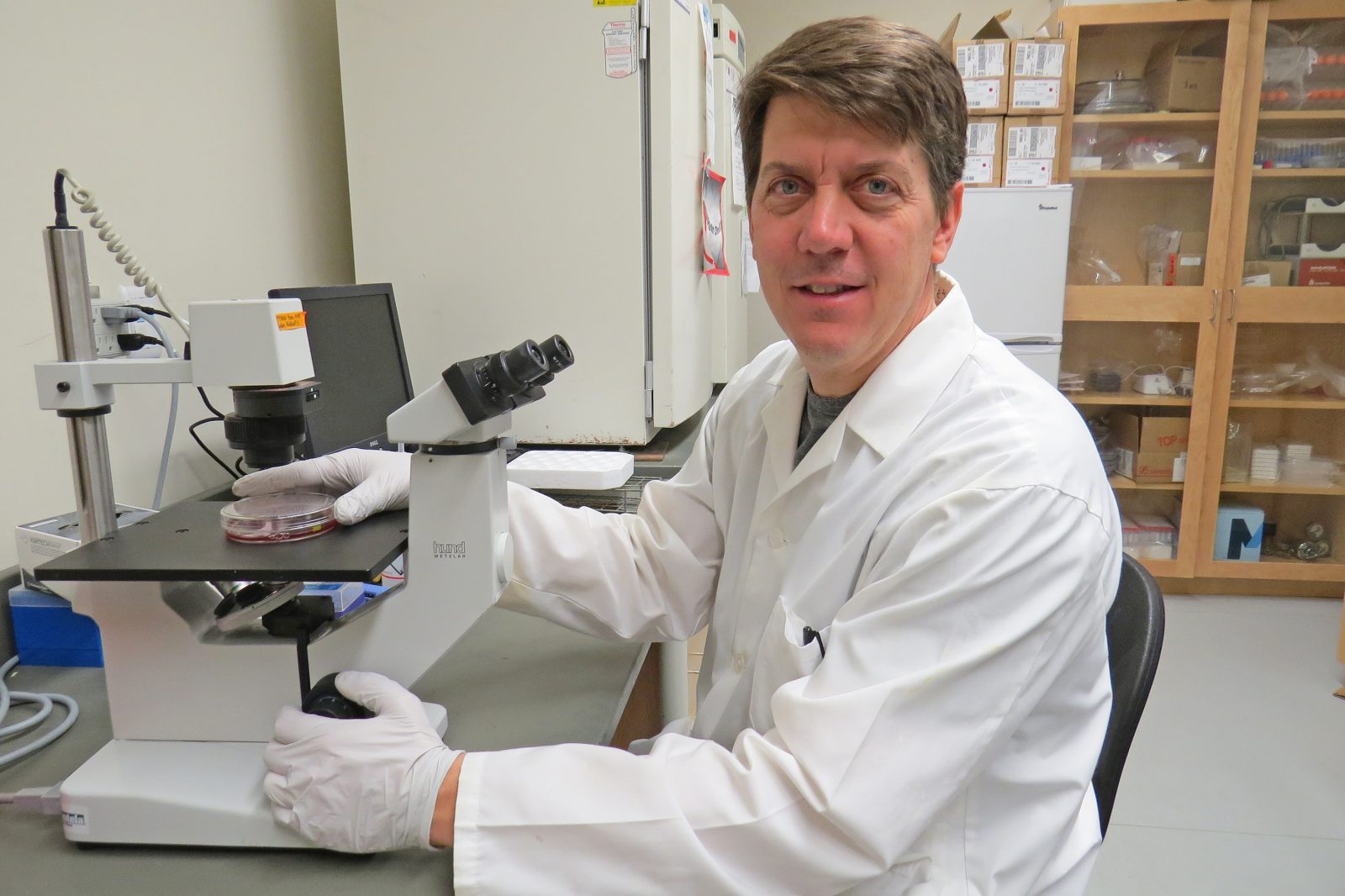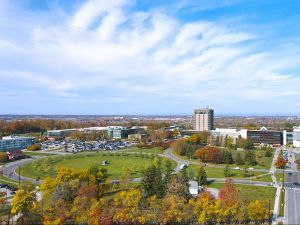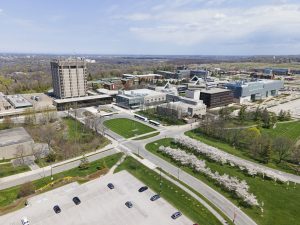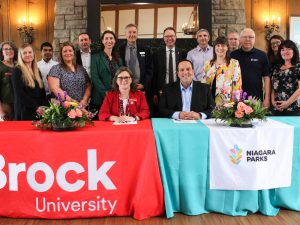 Associate Professor of Biology Jeff Stuart is one of 13 researchers who received funding from the Discovery Grants program of the Natural Sciences and Engineering Research Council of Canada (NSERC). NSERC awarded Brock a total of $2.5 million in this latest round.
Associate Professor of Biology Jeff Stuart is one of 13 researchers who received funding from the Discovery Grants program of the Natural Sciences and Engineering Research Council of Canada (NSERC). NSERC awarded Brock a total of $2.5 million in this latest round.Brock University researchers have been awarded $2.5 million in funding from the Natural Sciences and Engineering Research Council of Canada (NSERC).
Thirteen researchers received funding from the Discovery Grants program for $1.7 million. Funds were also granted for three teams to purchase lab equipment through the Research Tools and Instruments program, for $383,178.
In addition, nine graduate students were awarded $423,500 in graduate student awards.
“We’re grateful for NSERC’s long-standing support for the work of our researchers,” said Associate Vice-President, Research Michelle McGinn. “This funding enables our scientists to continue making cutting-edge discoveries in the areas of human health, climate change, animal physiology, and wine quality, to name just a few.”
One of the recipients is Associate Professor of Biology Jeff Stuart, who will use his grant to improve the media that scientists use to research cells. Media are liquids containing sugars and amino acids that support cell growth.
“Improved methods will allow scientists to better study cell growth and metabolism, and to identify drugs that affect these things,” said Stuart.
This year’s recipients of NSERC’s Discovery Grants:
- Shawn Beaudette, Faculty of Applied Health Sciences, “Empirical quantification of intersegmental spine neuromuscular function during dynamic movements”
- Uwe Brand, Faculty of Mathematics and Science, “Modern and deep-time brachiopods: climate change monitors of ocean warming, acidification and deoxygenation”
- Bareket Falk, Faculty of Applied Health Sciences, “Transformational mechanism(s) of neuromuscular activation and performance in human development”
- Fiona Hunter, Faculty of Mathematics and Science, “Evolution of mosquito-virus interactions: range expansions, viral coinfections and mosquito behaviour”
- Debra Inglis, Faculty of Mathematics and Science, “Redox balance in wine yeast and the relation to hyperosmotic stress and wine quality”
- Jeffrey Stuart, Faculty of Mathematics and Science, “Limitations imposed by non-physiological cell culture practices: characterization and solutions”
- Glenn Tattersall, Faculty of Mathematics and Science, “Visualizing Temperature: Physiology and Behaviour of Thermoregulation”
- Xiaojian Xu, Faculty of Mathematics and Science, “Optimal and Robust Designs for Active Learning and Regression Analysis”
- Tony Yan, Faculty of Mathematics and Science, “Chemical modification, structural and functional study of nucleic acids”
Recipients of Discovery Development Grants:
- Kimberley Gammage, Faculty of Applied Health Sciences, “Understanding mechanisms of psychobiological responses to social-evaluative threats in men and women: Body image as a model”
- Sheridan Houghten, Faculty of Mathematics and Science, “Computational Techniques for Bioinformatics and Information Theory Applications”
- Panagiota Klentrou, Faculty of Applied Health Sciences, “The role of exercise-induced sclerostin and of the extracellular vesicles on the bone-adipose tissue crosstalk”
- Gary Pickering, Faculty of Mathematics and Science, “Characterisation and implications of the thermal tasting phenotype”
Recipient of the Discovery Launch Supplement:
- Shawn Beaudette, Faculty of Applied Health Sciences, “Empirical quantification of intersegmental spine neuromuscular function during dynamic movements”
Recipients of Research Tools and Instruments Grants:
- Kimberly Cote, Faculty of Social Sciences: Electrophysiology amplifiers and software for Sleep Lab
- Rebecca MacPherson, Anthony Bogaert, Paul LeBlanc and Adam MacNeil, Faculty of Applied Health Sciences: Multimode Microplate Reader with Imaging Capabilities
- Melanie Pilkington, Tomas Hudlicky, Martin Lemaire and Georgii Nikonov, Faculty of Mathematics and Science: Micro Elemental Analyser for Modern Combustion Analysis
NSERC’s Discovery Grants Program assists in: promoting and maintaining a diversified base of high-quality research capability in the natural sciences and engineering in Canadian universities; fostering research excellence; and providing a stimulating environment for research training.
NSERC’s Research Tools and Instruments Grants Program fosters and enhances the discovery, innovation and training capability of university researchers in the natural sciences and engineering by supporting the purchase of research equipment.
“We are particularly excited that NSERC funded tools and instruments for three teams and thereby supports advances in science across multiple programs of research,” says McGinn.









